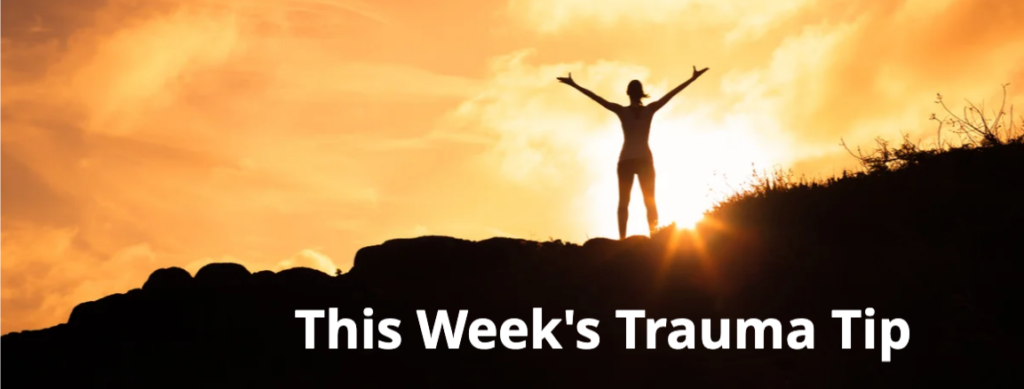
I’ve been thinking about fire a lot lately.
In my early 20s I lost most of my possessions in a storage unit fire.
- My childhood piano.
- The soft yellow baby blanket my grandma crocheted for me.
- The scrapbook of newspaper articles about my dad’s sports career.
- My high school awards and yearbooks and photos.
- The wooden jewelry box my dad made in high school, passed on to me when grandma died.
- All my beloved music books with scribbled notes from my piano teachers.
- Photos of my college friends and our camping trips together.
- Letters, cards and gifts from my first loves and best friends.
I was in-between apartments at the time, staying with a friend. After the fire, the only things I owned were what I had with me — a backpack, a bicycle, a motorcycle, and some clothes.
I felt unmoored without my possessions. Not the furniture or paperbacks or dishes — those could be replaced.
But the family heirlooms and sentimental items? The photos and mementos that gave me a history, an identity? Those were irreplaceable.
Loss Compounded
The young man who initially rented the storage unit to me was also the one who accidentally started the fire.
I didn’t know that on the morning after the fire. We hopped in a golf cart and he drove me to the charred remains of my storage building. The air reeked of burnt wood and melted plastic.
I stepped beneath the police caution tape to sift through the ashes. Miraculously I found a few items that survived. A stainless steel milk frothing pitcher. An Italian ceramic ashtray in the shape of a grand piano, an heirloom from my great-grandmother. A pounded copper vase, its shiny surface now a rusty patina. An aluminum trunk filled with memorabilia.
I reached for the ceramic piano and a police officer hustled over. “Don’t touch anything!” he said. I wasn’t allowed to take my belongings until the fire marshal completed his investigation.
A few days later, when they allowed us to take what was left, I searched for the ceramic piano from my great-grandmother. It was gone. Someone had stolen it. Who would do such a thing, when I had so little left already? That hurt more than the fire itself.
I loaded the mangled trunk into my car. When I got home I opened it, excited to see what survived. And then I wept when I saw its contents — all singed beyond recognition.
Heartbreaking to Heartwarming
Although it’s been 30 years since my storage unit fire, the Los Angeles area wildfires bring it all back — the grief at the loss, the rage at the insurance company, the heartbreak at the theft.
Mostly I remember feeling adrift, my faith in humanity shaken.
I recognize that losing my possessions is nothing compared to the LA folks who lost their homes. Who lost their entire neighborhoods. Who lost their schools, places of worship, businesses, libraries. Who lost their entire downtowns. Who lost loved ones.
It’s hard to comprehend that level of loss.
One of my Pasadena friends watched his house catch fire on live TV. The apartment in the back where his in-laws lived burned down. They lost everything. Firefighters saved the main house, but it suffered water and smoke damage.
It’s heartbreaking. I want to find words of encouragement or comfort for my LA-area friends.
But I know right now they’re in the thick of it. The sorrow at their loss. The stress and shock and surrealness of their situation. The derailment of their lives for months or even years as they work to remediate or rebuild or relocate.
Words are empty in the face of all that. Actions speak louder.
After my storage unit fire, friends and co-workers rallied around me.
An envelope with $1,500 in cash appeared on my desk. Then pots and pans. High-end stereo speakers. A note from a stranger asking where they should deliver a couch. A call from a lawyer who offered to represent me pro bono. A friend who found me an apartment that came with a piano. A high school teacher who sent me the last remaining yearbook from my senior year.
Those kind actions turned one of the most devastating experiences of my life into one of the most heartwarming ones.
Those kindnesses restored my faith in humanity.
TRAUMA TIP: Remember What’s Important
While we won’t all experience a devastating fire (thankfully!), we can learn from those who have. What helped them survive loss is a clue for what matters most in life — not just during a tragedy, but during an ordinary day.
1) Offer Kindness
Reflecting on my fire loss all these years later, what I remember most is people’s kindness and generosity.
While friends, coworkers and even strangers couldn’t replace my belongings, they softened my loss with their kindness. They showed me what really matters — being there for each other.
The size of their generosity didn’t matter.
One coworker brought me a vegetable steamer — a seemingly tiny gesture. Except I love steamed vegetables! And knowing she thought of me, went through her kitchen cabinets looking for what she could spare on our minimal nonprofit wages … that meant a lot to me.
Loss can feel lonely. Kindness from others helps us feel supported.
2) Focus on Loved Ones
A few days ago actor Milo Ventimiglia (This is Us, Heroes) returned to the charred remains of his Malibu house.
When the wildfires tore through their neighborhood, Milo and his pregnant wife,
Jarah Mariano, evacuated. For awhile they watched their home burn on security cameras. Finally it was too much and they shut off the cameras.
When asked what they’ll do now, Milo told CBS Evening News:
“We’ve got good friends, and we’ve got good people we’re working with. We’ll make do. Wife and baby and dog are most important.”
Milo knew what mattered most were his loved ones.
3) Be Calm & Compassionate
As the LA-area wildfires continue to burn, police officers have barricaded evacuated neighborhoods to protect residents and prevent looting. People trying to get back to their homes — or what’s left of them — must pass through checkpoints.
Steve Romero, a Santa Monica police officer, tried to be a calming presence at his checkpoint. He answered residents’ questions as best he could. But, understandably, people were upset.
Officer Romero told The New York Times:
“We’ve had people crying and yelling. As long as you understand their state of mind and show them compassion, you’re able to get through it.”
When we’re in the midst of a crisis, we often react with one of the four stress responses — Fight, Flight, Freeze or Fawn. We’re just trying to hold it together. We need people to give us a little grace during our breakdown.
In Closing . . .
I still have that vegetable steamer my coworker gave me. Every time I use it, I think of her and all the other people who helped me through a difficult time.
Remembering their kindness fills my heart with gratitude — and overshadows my memories of loss.


Some of the remnants after I lost all my possessions in a storage unit fire—a letter from my deceased aunt, my dad and uncle’s football photo, my high school yearbook, and a beer stein from when I lived in Germany as a kid. People’s kindness turned a devastating experience into a heartwarming one, and I’m grateful.